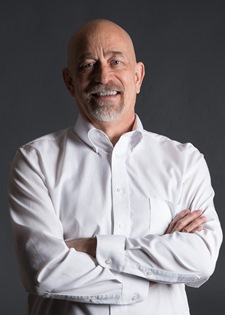Eric McCollum

Dr. McCollum earned his Ph.D. from K-State in 1986. The author or co-author of five books, he is professor and director of the marriage and family therapy program at Virginia Tech.
What is special about K-State’s MFT program?
So many things are special. One is its history. Kansas State has been training marriage and family therapists for decades. I graduated nearly 30 years ago and it was a well-established program then. Another is the strength of the faculty. Dr. Candy Russell and Dr. Anthony Jurich were the core faculty members when I was a student and both were national leaders in the field. That trend has continued including now with my classmate and wonderful colleague Dr. Sandra Stith directing the program.
Why are you in MFT?
I have been a therapist for 40 years now – beginning my MSW practicum in 1975 in a community mental health center in Des Moines, IA. At the time I began to study MFT seriously – while I was a social work trainee at the Menninger Clinic which was then located in Topeka – MFT was a revolutionary field. It provided a radical new way to look understand the difficulties people brought to therapy and a wide range of exciting techniques to help them. I remain committed to that possibility – that a systemic understanding can truly be the basis for change at all levels.
In your opinion, what does it take –personally – to have a career in MFT?
I think if you aren’t fascinated by people and their experiences, you won’t last long as an MFT. I feel very grateful for the experiences I have had by proxy as people have allowed me into their worlds to see both the best things that happen in their lives and the most difficult. It has truly made my life richer.
Teri Nelsen

Dr. Nelsen, a licensed clinical marriage and family therapist working at Ft. Riley, earned both a master’s and a doctorate degree from K-State’s MFT program.
Why are you in MFT?
It was my calling — seriously. As an undergrad, I read about MFT and immediately knew it was my passion. Healthy family relationships are a top priority for me both personally and professionally.
What do you do in your current job?
I am honored to provide mental health services to military service members and their family members/dependents in a military medical treatment facility department of behavioral health. I treat them for PTSD, depression, and anxiety, and work with couples and families to help them cope with the stresses of military life style — as well as typical marital and family issues. I have also provided clinical supervision to several MFTs who worked with me to help them obtain their clinical licensure.
What are your biggest challenges in your job and how to you meet them?
Dealing with the military medical system and sometimes conflicting goals of what’s best for my clients vs what’s best for the military (and for tax payers). I use my MFT skills – lots of patience, humor, and diplomacy. Also, I do my best to leave work at work and enjoy my evenings and weekends with family and friends, exercise (walk my dogs!), and doing crafts (mostly knitting) while listening to/ watching funny movies/ TV (especially British humor).
